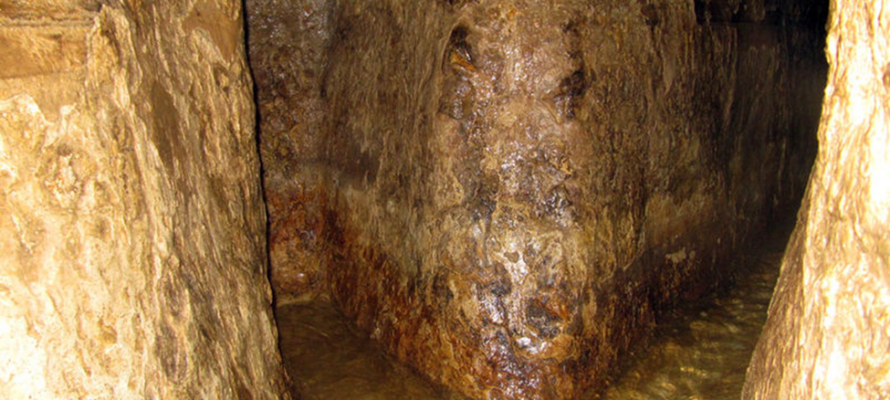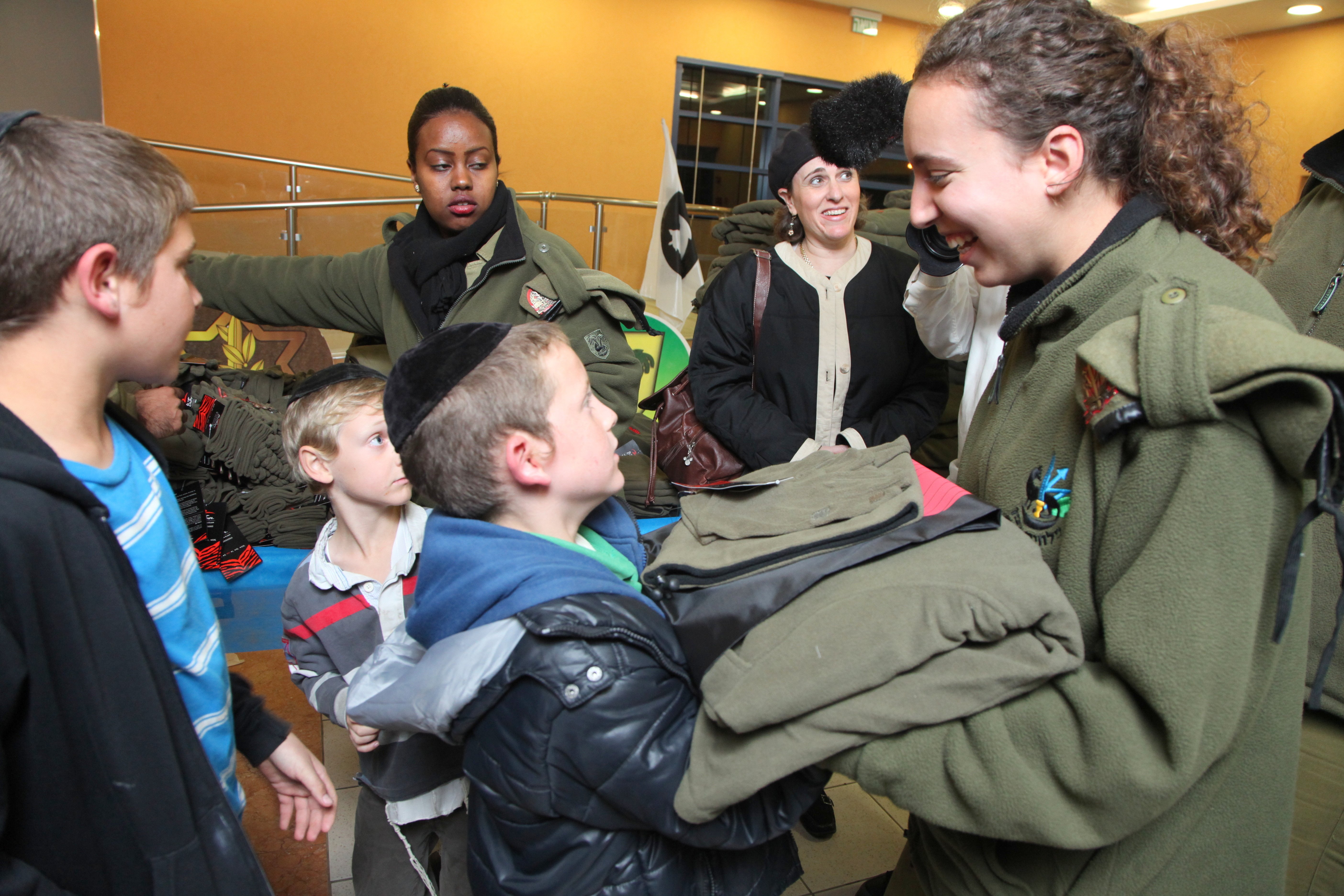And Hezekiah stopped up the source of the waters of the upper Gihon, and he led them straight down on the west to the City of David (2 Chronicles 32:30)
By Nosson Shulman, Licensed Tour Guide
There are certainly no shortage of incredible Biblical sites for visitors/tourists to Israel! As a licensed tour guide, my job is to explain both the familiar and lesser-known events/stories from the sites that we visit. Few sites, though, are as impressive and explicitly mentioned in as much detail as where we are visiting today. I am of course referring to the “Hezekiah Tunnels”, where the Biblical “Gihon Spring” has flown through for 2600 years. This unique site is where arguably the greatest miracle ever to take place occurred in the long history of the Jewish people. Let us now enter together into these water tunnels with our flashlights (there is also a dry option for those who prefer not to get wet).

Throughout the course of history many places had water challenges, and Jerusalem was no exception. From the times of the Canaanites (circa 1800 BCE) until the Second Temple period, the main water source, the Gihon Spring, was located outside of the city walls. During a time of peace, the simplest way to get water was to leave the city gate, head down to the spring with a bucket, fill it and bring the water back to the city. However, during a time of war when leaving the city was under siege by the enemy, getting to the water by normal means was impossible. Approximately 3800 years ago (around the time of Abraham), the ancient Canaanites built a fortress (which jutted outside the city wall) on top of the source of the Gihon Spring.

Photo Credit: Ir David Foundation
To access the water source, an impressive underground tunnel was built which led to the water source underground (and therefore out of range of enemy weaponry). Today, tourists can walk through this ancient tunnel.

Photo Credit: israeltourism – CC BY-SA 2.0
After descending the stairs, we are in the ancient fortress!
From the source, some of the water was channeled into a pool for storage. At this pool, King Solomon was likely coronated (see 1 Kings 1:33). According to Jewish sources, it was a custom to anoint Kings by a flowing water source. This symbolized that their reign should be as endless as the flowing waters.

Photo Credit: Tamar Hayardeni
Some of the water was channeled through a tunnel which watered the gardens below in the Kidron Valley. Many archeologists claim that it was through this tunnel that Joab (King David’s general) entered, to conquer the city from the Jebusites (see 2 Samuel 5:8). Under the Judean Monarchy, this water system continued to be used until Hezekiah made a new tunnel, which dried out this tunnel (today, this is the dry option for tourists who want to “Walk the Bible” without getting wet).

Photo Credit: Deror_avi – GNU Free Documentation License
During the time of the very righteous King Hezekiah, the world’s undisputed superpower was the ruthless Assyrian Empire. They were conquering the known world at that time and had never lost a battle (let alone a war). They were the largest army up until then, with 185,000 troops (see 2 Kings: 19:35), (to put it into perspective, about 300 years later when Alexander the Great conquered most of the known world, he had less than 40,000 troops). After the Assyrian King Sennacherib had destroyed the other walled cities of Judea, including Lachish (for more on that incredible site, click here), his troops began to march towards Jerusalem. In preparation for the war, Hezekiah built a new city wall (see 2 Chronicles 32:5. For more on this site, click here). He also wanted to ensure that his enemies would have no access to water (as mentioned, the Canaanite tunnel which was still in use at that time had holes in it which watered the gardens below and would have provided ample water to the sieging Assyrians). Therefore, Hezekiah sealed up the Upper Gihon Spring (which flowed through today’s “Dry tunnel”) and rediverted the water underground, leading it westwards to a pool at the bottom of the City of David (see 2 Chronicles 32:30). He then dammed and built a wall around, so the water was entirely within Jerusalem’s city walls, and not accessible to the attacking Assyrians. For many tourists to Israel, walking through this very water tunnel is one of the highlights of their trip.

Photo Credit: Ir David Foundation
Ultimately, G-d performed a miracle and sent an angel who slaughtered the 185,000 Assyrians soldiers, removing the powerful threat to Judea, which continued to remain independent for nearly 150 years.

Photo Credit: Nigyou – Creative Commons Attribution-Share Alike 3.0 Unported
This water system continued to be used for centuries, including the entire Second Temple period (until 70 CE when both the Temple and much of the system was destroyed by the Romans). The water led to the Shiloach pool and according to Jewish sources, it was from this pool that the “Sin waters” were gathered and mixed with the ashes of the Red Heifer (see Numbers 19). This water was then sprinkled (by a Priest) onto someone who had become ritually impure due to of having been in contact with a corpse (for example, the person had simply been to a cemetery or was in a room when somebody died). The person who had the water sprinkled upon them then became purified. This was extremely important, because it is forbidden for Jews to enter the Temple while in this form of impurity (see Numbers 19:20 which discusses the repercussions of doing so). Once this holy ritual was performed, a Jew could then ascend to the Temple Mount (this Biblical prohibition is still in effect today, even without a Temple. Until the next Red Heifer is found according to its very strict specifications, which Jews believe will be in the days of Messiah, ascending to the Temple Mount is forbidden for Jews as everyone is presumed to have this impurity today).

(the 2000-year-old stone pavement seen on the bottom right is original).
Every year on the Jewish festival of Sukkot (when the Temple stood), the cherished commandment of the water libation was performed. Water was gathered from this pool, brought to the holy Temple, and poured upon the altar. The joy that accompanied this procedure was so intense and palpable, that according to Jewish sources, one who has never seen this rejoicing has never experienced real enjoyment.

Photo Credit: Deror avi – Creative Commons Attribution-Share Alike 3.0 Unported
On your next visit to Israel, I look forward to leading you through these ancient Biblical tunnels, walking on the same grounds where so many great Biblical heroes tread!
To see a sample Jerusalem walking tour itinerary which can include the City of David, click here
Sponsored by Rockets Into Roses: Discover the powerful art of an Israeli Hero living on the Gaza border, who transforms rocket fragments into stunning, one-of-a-kind masterpieces. His Art, his Jewelry, and items of Biblical Value owned by US presidents and many world leaders, not only symbolizes resilience but directly supports charities aiding Israelis in the Gaza Envelope. Enter code vip10 for a 10% discount, valid for a limited time only.
To sponsor our next article or newsletter and have your business seen by thousands of our American pro-Israel subscribers and beyond, please contact us at info@guidedtoursofisrael.com
Nosson Shulman is a licensed tour guide and trip organizer in Israel who specializes in History, Tanach (Bible) and Adventure Tours. For itineraries click here. Check out his new virtual tours including free sneak preview videos.
Keep Israeli Soldiers Warm - Send Winter Jackets!
We are honored to thank the young men and women of the IDF who risk their lives every day to defend the citizens of Israel.
Join us in sending winter care packages and personal notes of support to Israeli soldiers who are out in the cold all day.
Warm up a soldier's heart with essential winter wear including fleece jackets, hats, gloves and more. Keep an entire unit warm!
THE SOLDIERS REALLY APPRECIATE YOUR LOVE AND CONCERN!




